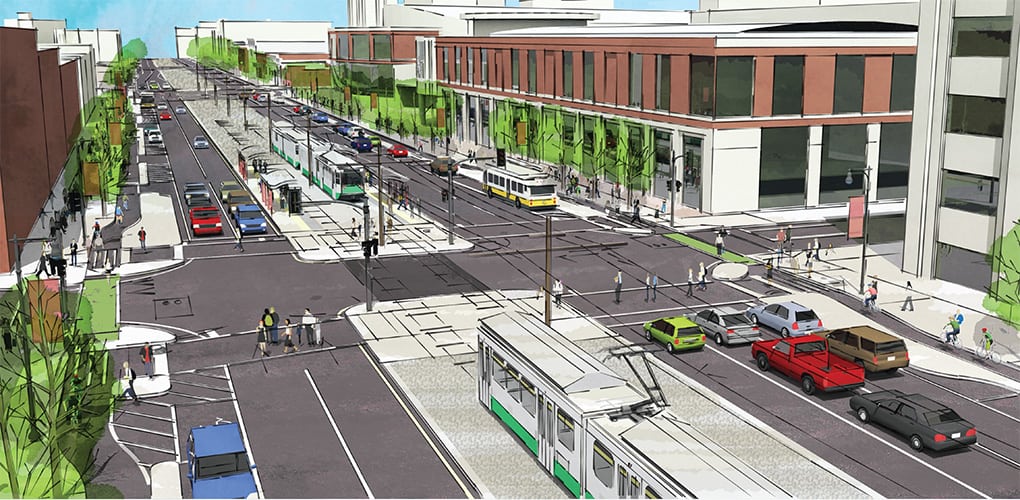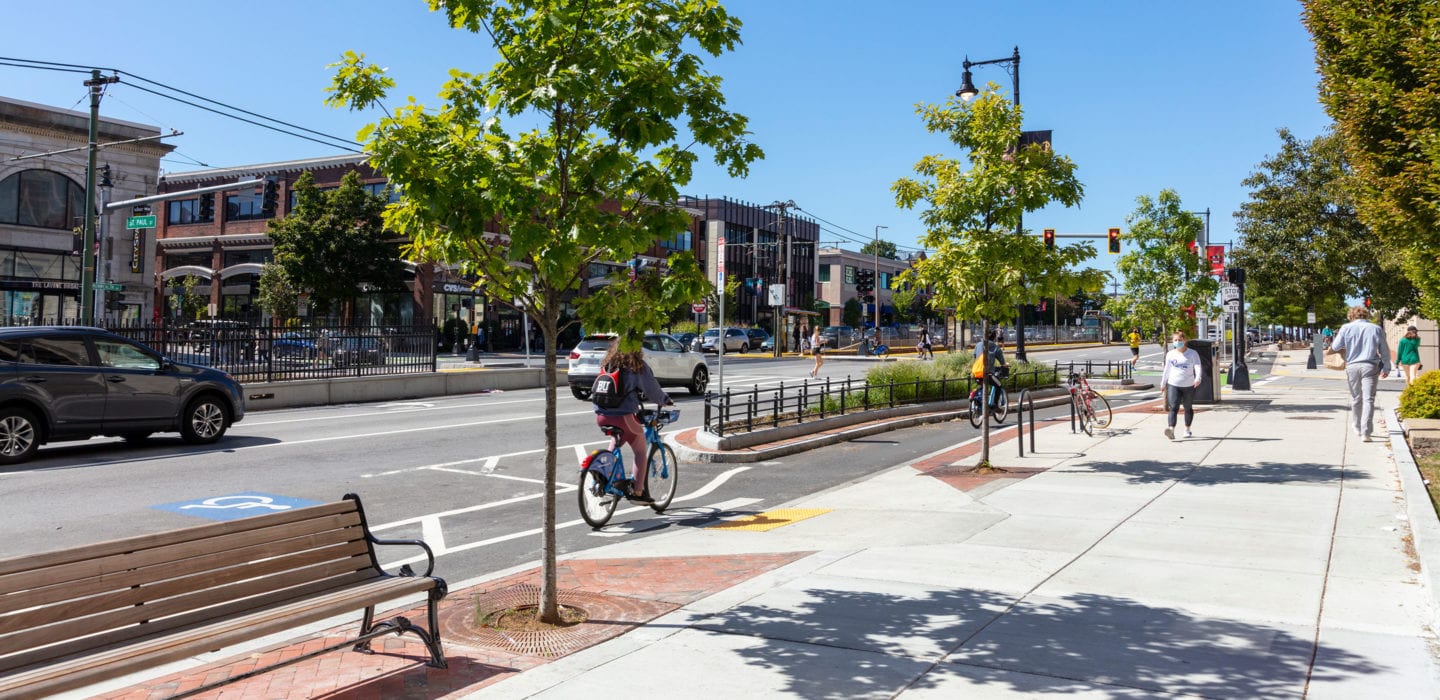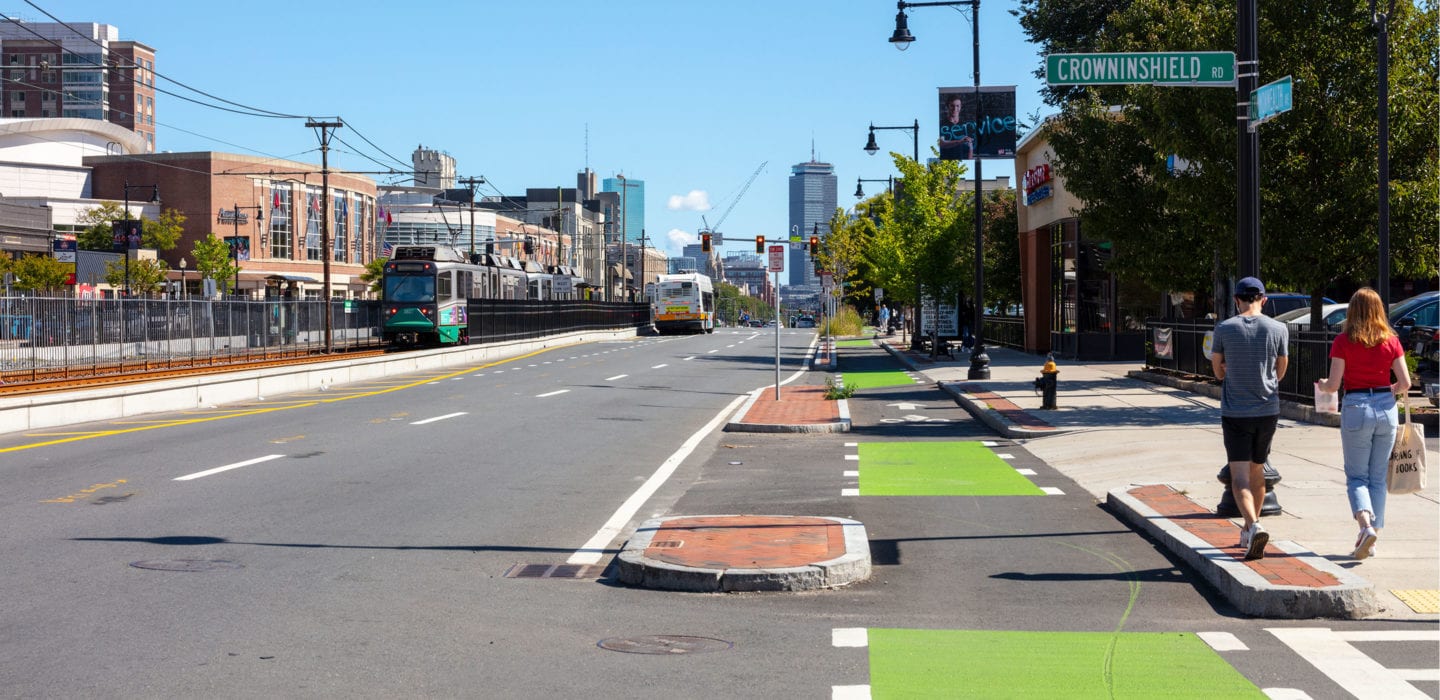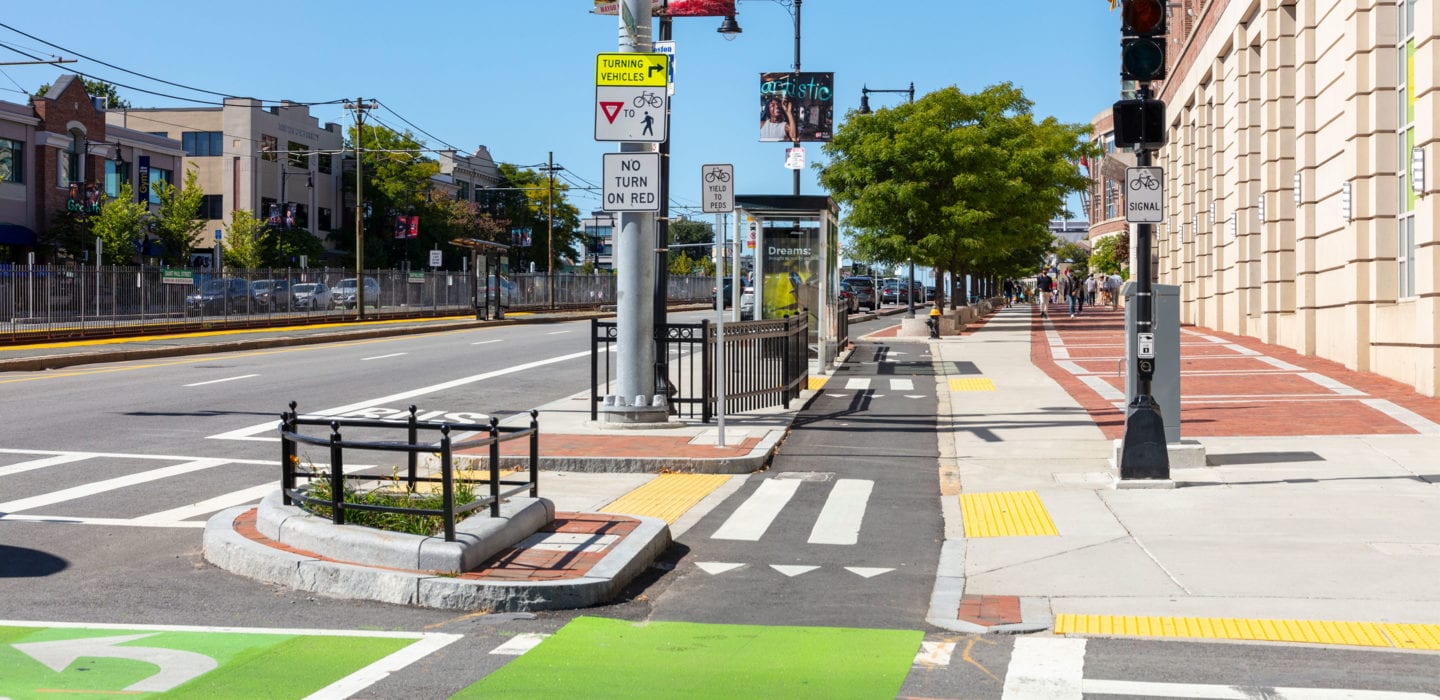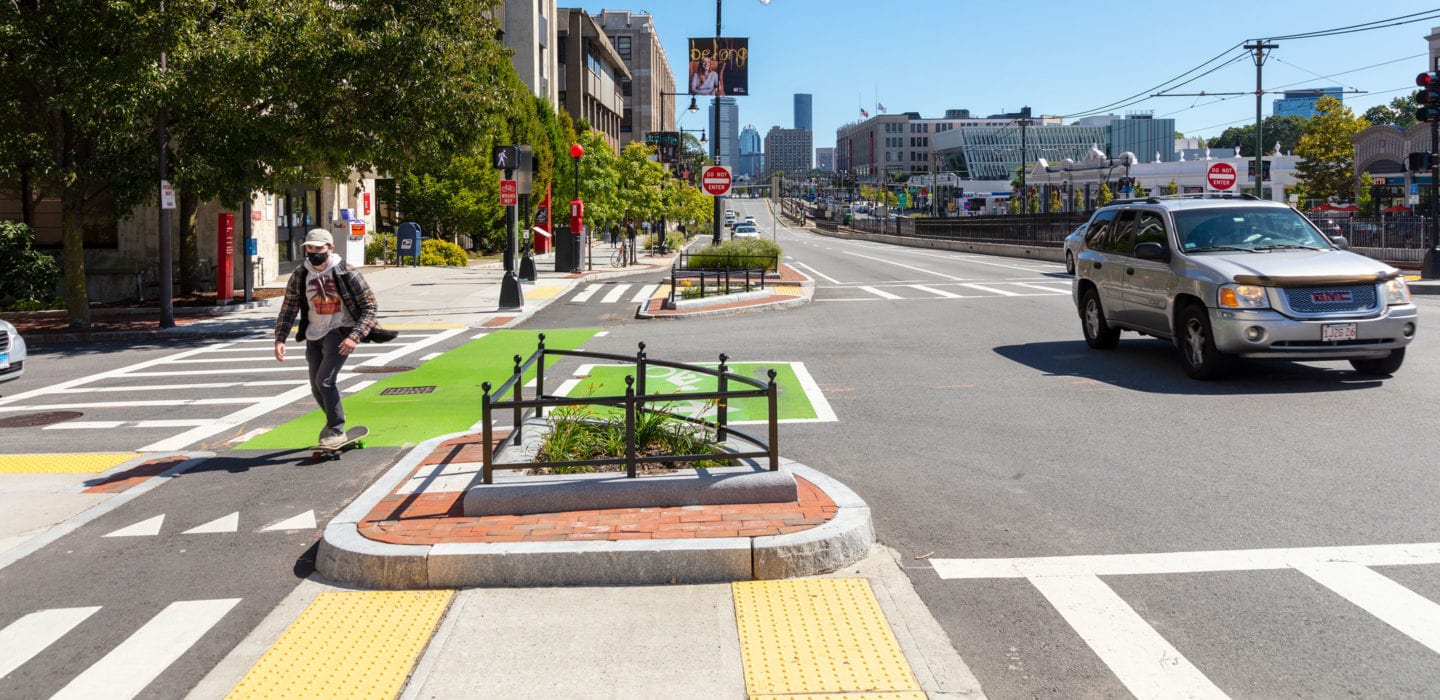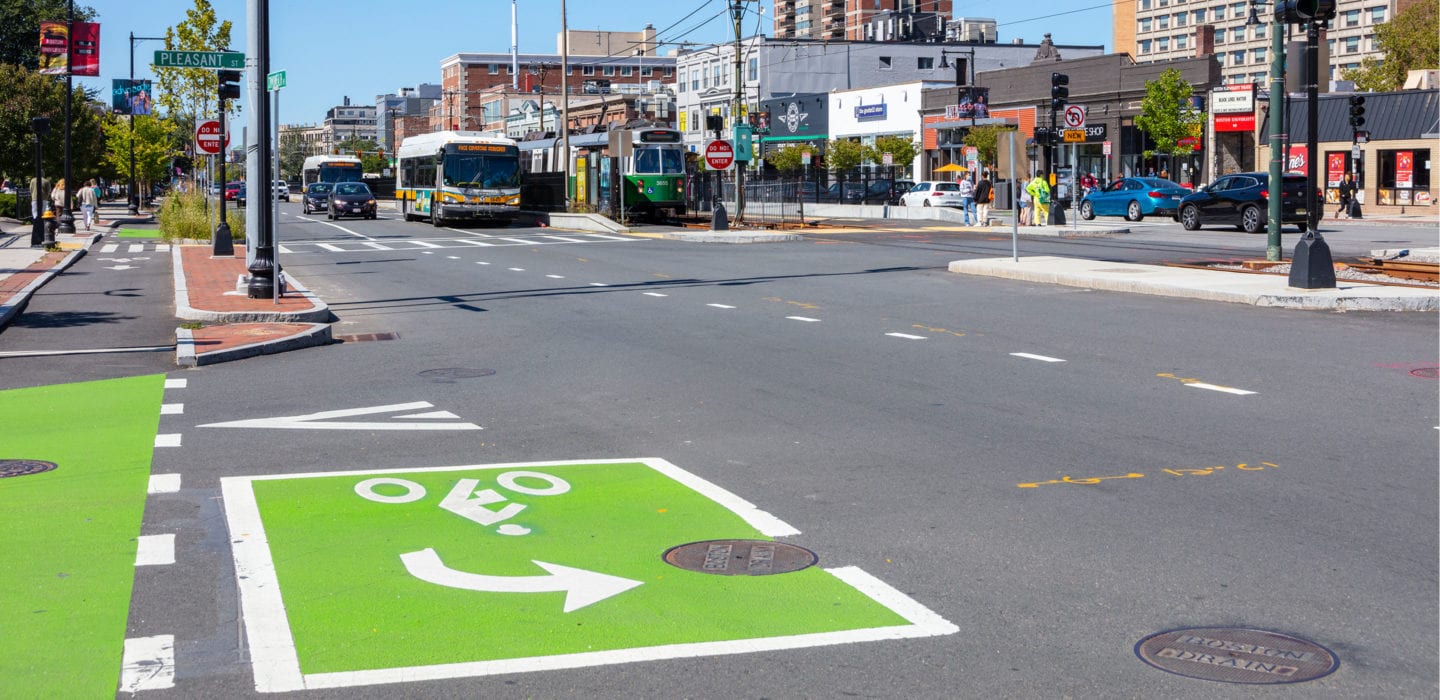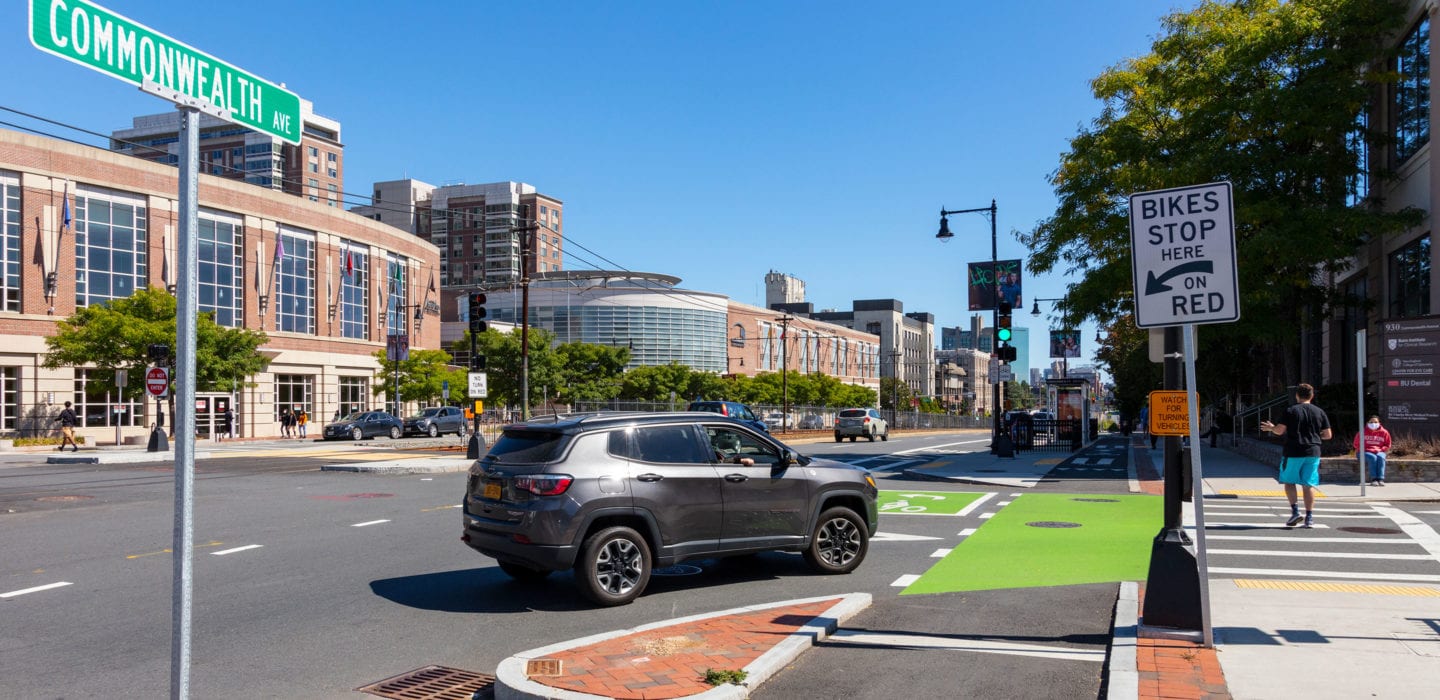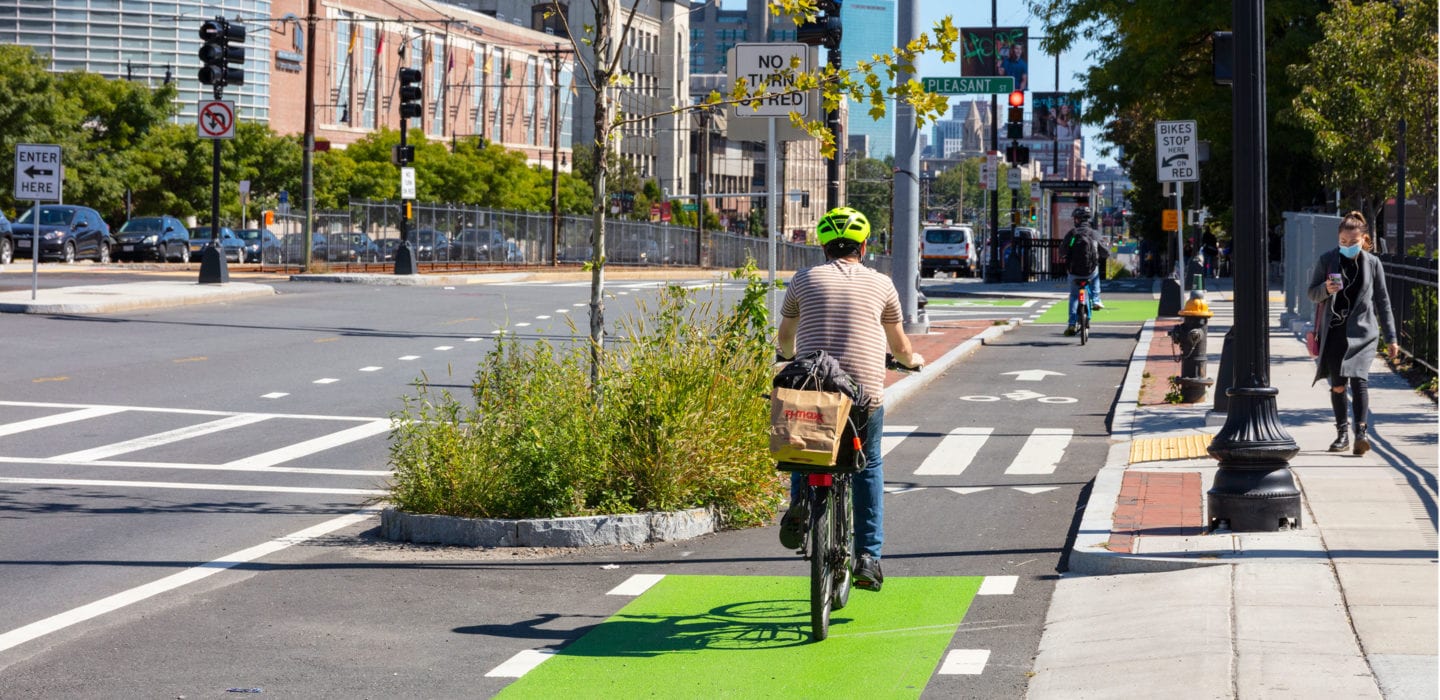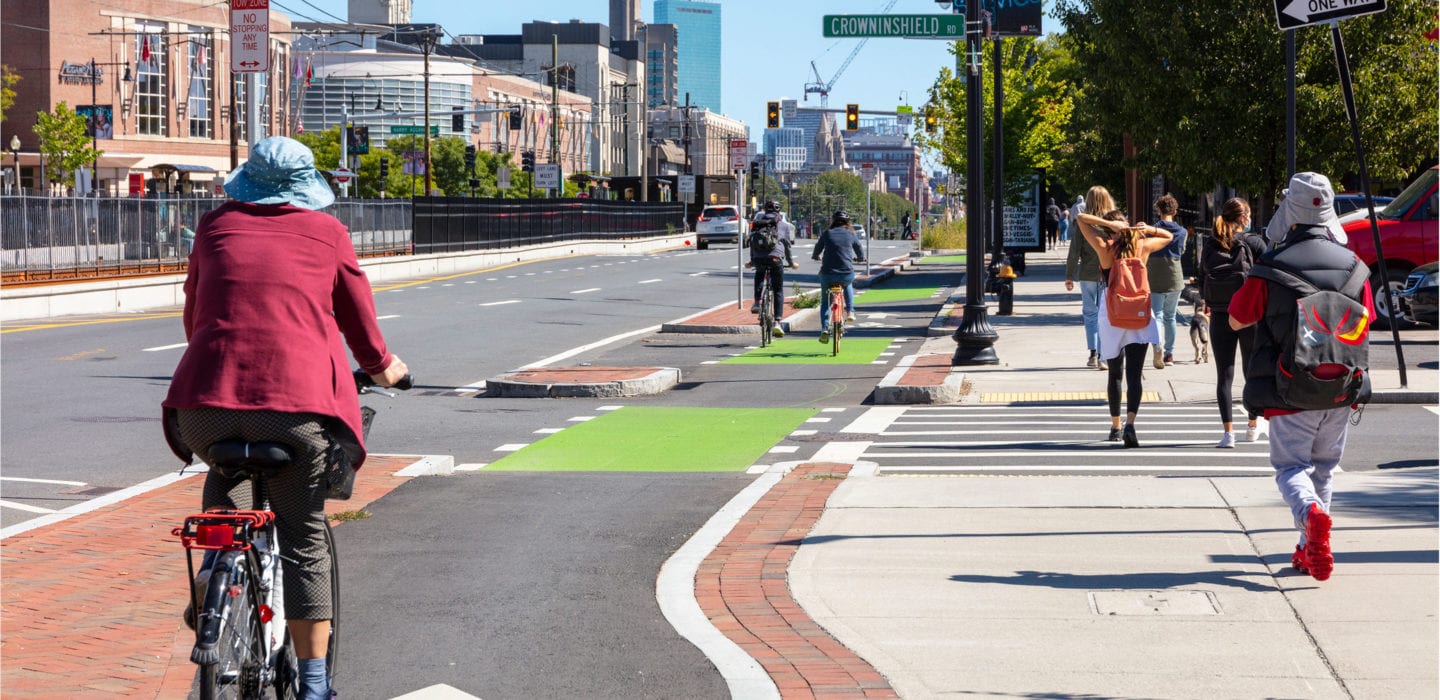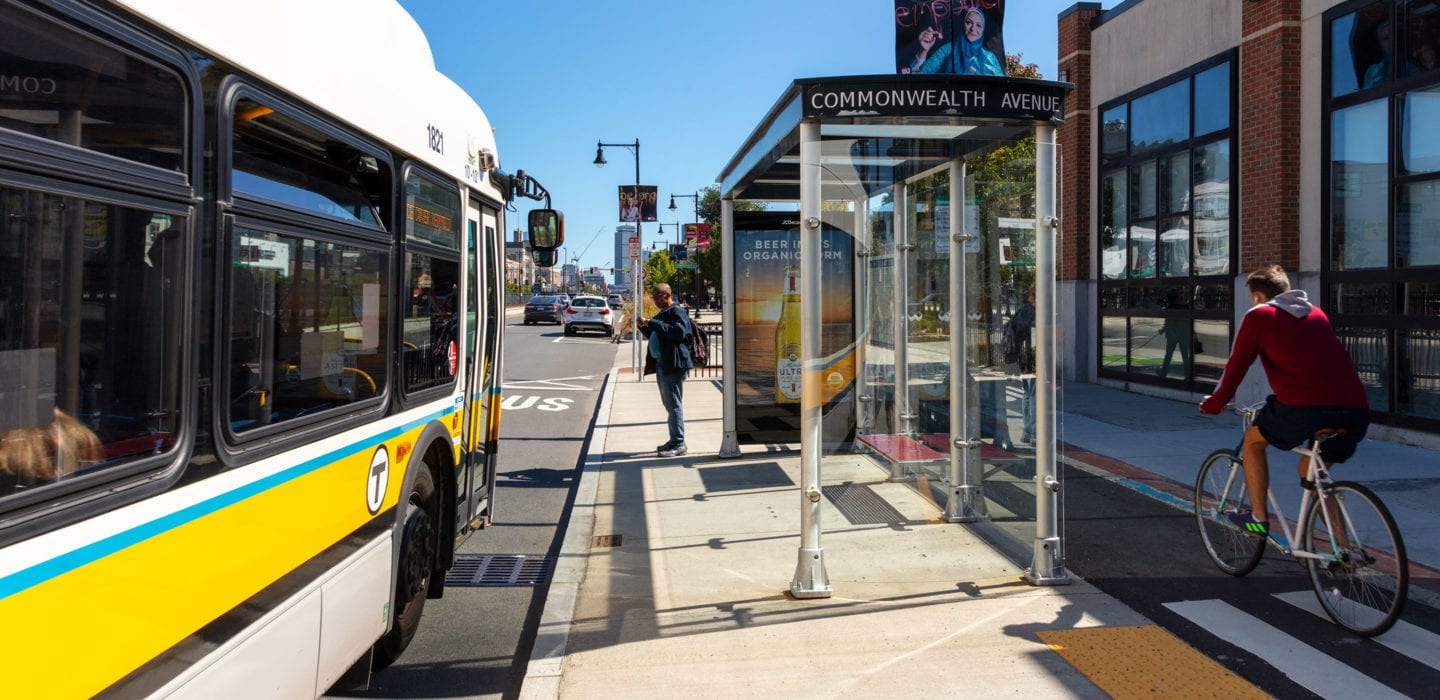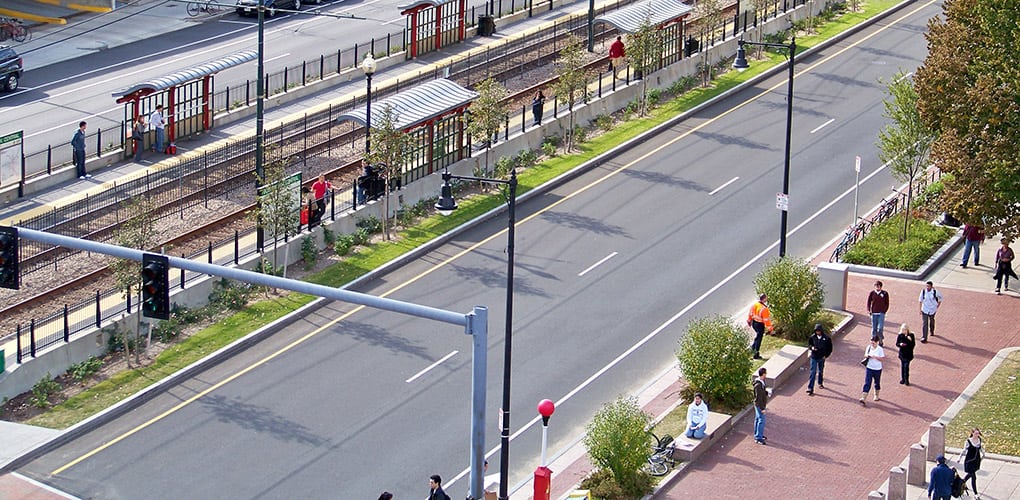Commonwealth Avenue Improvements (CAP 2A) Complete Streets
Boston, Massachusetts
Following completion of the highly acclaimed improvements of Commonwealth Avenue Master Plan Phase 1 (Kenmore Square to the BU Bridge), BETA was retained to design Phase 2A (BU Bridge to Alcorn Street). Phase 2A represents an opportunity to continue the restoration of Commonwealth Avenue as one of the grand gateway boulevards to Boston. Prior to this project’s completion, Commonwealth Avenue lacked the orderly accommodation of the multi-modal demands on the roadway which include significant vehicular, transit, pedestrian and bicycle volume.
The project includes numerous safety improvements such as signal upgrades, protected turn lanes and phasing to more safely separate movement of all modes. Today, there is significant bicycle activity (>350 bikes/hr) along Commonwealth Avenue accommodated in bicycle lanes. In response to safety issues for cyclists, a major innovation of the design was implementation of the City’s first separated protected bike lane which was designed in compliance with the City’s Complete Street design guideline and MassDOT’s new design guide for separated bike lanes.
A major challenge for the project was the balancing of all the competing needs for the typical section. Through an extensive workshop process, the design team coordinated with numerous City Departments, MassDOT, FHWA, MBTA, Boston University, Livable Streets, The Town of Brookline and many others to derive a design that met all stakeholder requirements.
An extensive streetscape program was proposed to transform the visual environment. The program includes planting more than 120 trees, brick inlay treatments on sidewalks, period lighting, planters and street furnishings. Key upgrades include the reconstruction of sidewalks and street crossings to provide complete ADA compliance.
In addition to the numerous roadway and streetscape innovations, the design team also modified the existing drainage system to incorporate an extensive infiltration capability. This innovation was a critical consideration for Boston Water and Sewer initiatives to reduce phosphorous loading in the Charles River basin. BETA also prepared NEPA Categorical Exclusion documentation for the project. In addition to a constantly evolving design, the schedule was also a critical consideration. The BETA team was required to condense the design schedule from twelve months to six months in order meet the timeline for funding the project.
This project was awarded an Engineering Excellence Award by the Massachusetts branch of American Council of Engineering Companies in 2021.

